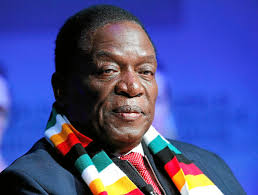
President Emmerson Mnangagwa’s pledge that the government will increase the allowances for war veterans and review their benefits is yet another illustration that, just like his predecessor Robert Mugabe, the Zanu PF leader will dish out trinkets to retain power.
Mnangagwa took over from Mugabe after a coup last year and proposed to usher in democracy and a new way of doing things after his mentor’s ruinous 38 years in power.
Mugabe’s decision in 1997 to give war veterans unbudgeted lump sum pensions of $50 000 each after the former freedom fighters revolted against him is often cited by economists as one of the main triggers of the economic problems that have ravaged Zimbabwe for almost two decades.
The former president was to roll out a number of other populist policies that included allowing war veterans and Zanu PF supporters to rampage through productive commercial farms, destroying an industry that was Zimbabwe’s economic backbone at the turn of the millennium.
After taking over from Mugabe, Mnangagwa did not take long to show that he was cut from the same cloth as the man he describes as his father when a few weeks into his reign, he handed over luxury cars to chiefs.
The traditional leaders, like the war veterans, have allowed themselves to be used as pawns by Zanu PF in its power retention schemes in exchange for trinkets funded by long-suffering taxpayers.
Therefore, it did not come as a surprise when Mnangagwa promised the over 30 000 war veterans that their monthly pay-outs were being reviewed.
The statement followed threats by the war veterans to dump the president and his party after a number of them lost in their bids to become Zanu PF parliamentary election candidates during the recent primary polls.
- Chamisa under fire over US$120K donation
- Mavhunga puts DeMbare into Chibuku quarterfinals
- Pension funds bet on Cabora Bassa oilfields
- Councils defy govt fire tender directive
Keep Reading
Mnangagwa’s decision to review the pensions comes on the eve of a crucial election where he is seeking to cement his hold on power after he was thrust into the presidency by the military.
That Zimbabwe’s economy cannot afford the increased pensions is not debatable.
The government has been struggling to pay doctors, nurses and teachers decent salaries for years and the industrial action by the health workers in recent weeks failed to move the authorities to improve their working conditions.
Zimbabwe’s health institutions are in a poor state in terms of infrastructure, equipment and availability of essential drugs, yet the government has the money to pamper war veterans.
If the review of the pensions was really meant to cushion the former freedom fighters against the rising cost of living, Mnangagwa would have ensured that his government provides the right conditions for the economy to self-correct.
Increasing government expenditure will obviously complicate the economic situation and delay the recovery that would have otherwise helped the majority of Zimbabwe’s poor. Instead, only a tiny minority that used to enjoy special privileges under Mugabe has been rewarded to ensure Mnangagwa retains power.
This is certainly not the new dispensation that the new Zanu PF regime promised.











